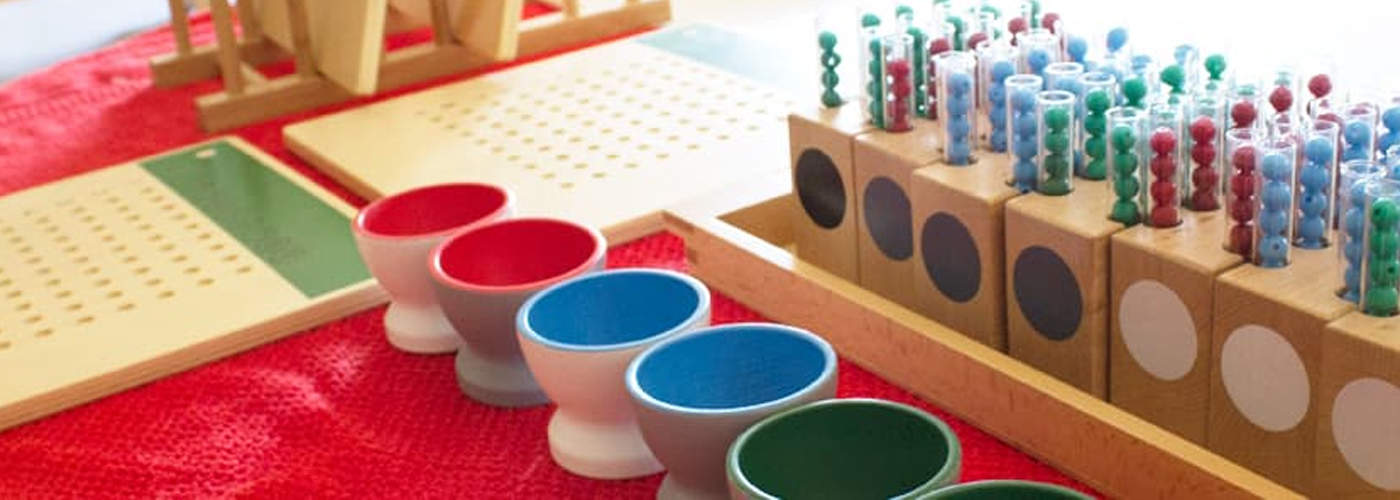It is a basic training focused on the educational needs of children between 6 and 12 years of age. Some tools will be obtained to guide children during their stage of primary education under Montessori pedagogy.
At this stage, children continue to be the protagonists of their learning, but their capacity for abstraction and interest in culture increase.
- 100% online training
- Without schedules, sign up and start now!
- Up to 60 days to complete the course
- IMI Certificate, accrediting 20 hours of training
MONTESSORI COURSES FOR THE 6-12 YEARS OLD STAGE
MONTESSORI COURSES FOR THE 6-12 YEARS OLD STAGE
Objectives
HISTORY
AUTHONOMY
DEVELOPMENT OF CHILDREN
ADULT'S ROLE
ACTIVITIES
OBSERVATION
Information
- Teaching team with great knowledge and international experience in Montessori classrooms.
- Didactic material: in our virtual campus you will find theoretical and practical content and videos.
This course offers key information to enable a change in current education. The renewed pedagogical approach offered by the Montessori method is the common thread that will allow us to understand the elements that we can use to start the transformation of any elementary classroom.
The theoretical bases of Montessori pedagogy will be disclosed, as well as examples of activities from the various curricular areas that are worked in the Montessori classroom for boys and girls from 6 to 12 years old, considering that they are the protagonists of the learning.
Montessori Education is based on observations of the child’s real and spontaneous nature. Therefore, Observation is the basis of all classroom work and the constant guide to our behaviour.
The objective of Education is not a mere acquisition of knowledge, but rather that the child develops all his physical, intellectual and emotional potentialities so that he can finally achieve full and healthy adult independence.
Therefore, personal and cognitive autonomy and competency learning will be enhanced thanks to all the findings of Dr Montessori, which are also reflected in an improvement in academic results.
From a psychological point of view, there is a significant change in the child’s personality from the age of 6. Knowledge is transmitted more easily when there is enthusiasm for learning. A second aspect of education at this age stage is the way in which the child explores the field of morality, discerning between good and bad. As the child becomes more knowledgeable about morality, he wants to apply his own value judgment and make decisions for himself.
In this period we also observe in the child the need to relate to other children, in these social activities children organise themselves and naturally adapt different roles and practice collaborative work.
Maria Montessori
Prepared Environment
- How are Montessori classrooms designed?
- What are the characteristics of the materials that fill these classrooms?
- Why are design and materials so important to child development?
Adult
- What kind of citizen do we want for the world in the future?
- What role does the teacher play in class?
- What is the key element in the adult that accompanies the child that allows his development, evolution and autonomy.
Observe the Elementary child:
- Following its psychic characteristics.
- Within the Development Phases.
- Own learning rhythms.
- Absorbing Mind vs. Reasoning Mind.
- Human tendencies typical of every human being (desire to explore, ability to explore…); potentialities.
- Harvesting the fruits of Standardisation: learning to learn capability.
Key elements of development in the second plane:
- Socialisation and moral sense.
- Reasoning mind.
- Stability and growth.
- Imagination.
- Abstraction.
- Implement Cosmic Education in primary.
This Montessori Elementary Course is aimed at:
- Elementary teachers (from 6 to 12 years old)
- Foreign Language Teachers
- Physical Education Teachers
- Special Education, Hearing, and Language Teachers
- Music teachers
- Montessori 0-3 Guides who wish to expand their knowledge
- Montessori 3-6 Guides who wish to expand their knowledge
- Homeschooler families (homeschooling)
- Toy library educators
- Educators of children with special needs
- Grandparents, families and any other professional profile interested in this stage of development
- Psychologists, Speech Therapists, Pediatricians, Therapists, Neurologists
- Children’s educators
- Mothers and fathers
- Babysitter
- Other educational environments
- Any professional interested in educational innovation
After successfully completing the activities requested at the end of each module, the student will receive a Certificate in digital format, awarded by the International Montessori Institute as the official training center for Montessori pedagogy.
Registering for the course is very simple, you must click on the “Take this Course” button that you will find under the course title.
Once this is done, the shopping cart will appear with the course you have chosen, and you must click on “Proceed to checkout”, or continue browsing our website to add new courses to your cart.
The next step will be to fill in the form with the billing information and choose the payment method: by card or Paypal, and click on “Place order”.
After the registration process, you will automatically receive a welcome email, which will include your access codes so that you can start the course. Remember that you have up to 30 days to complete the course.
Remember that after reading or viewing the content of the lessons you must press the “Completed” button, and thus proceed to the next topic.





